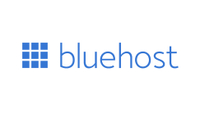• All of the best builder deals Whether you’re creating an individual or business website, the best cheap website builders offer users visually-impressive templates, specific marketing or website SEO (opens in new tab) tools, small businesses (opens in new tab) and ecommerce (opens in new tab) functionalities, and intuitive user interfaces that utilize drag-and-drop (opens in new tab) technology. We’ve outlined below our best cheap website builder deals from providers across the sector. Wix (opens in new tab) is our top platform across many use cases, and it’s one of the most popular and highly-rated site builders available thanks to its powerful editor and versatile user experience. In May, Wix is offering 10% off its yearly premium plans with the code TAKE10. For those looking to build an ecommerce website (opens in new tab), Shopify (opens in new tab) is one of the most commonly-used ecommerce store builders available. This month, it’s offering 10% off annual plans, and 20% off biennial plans—it’s also worth noting that you can try the platform for free for 14 days, with no credit card required. If you’re entering the website builder sector at the beginner’s end of the spectrum, 1&1 IONOS MyWebsite (opens in new tab) offers simple, no-code site creation with excellent tools and features, and is currently available for 50% off. Read on to find the best cheap website builder deals available: if you’re in the market for the best web hosting (opens in new tab) services, it’s also worth taking a look at the deals offering best web hosting for cheap (opens in new tab) to save yourself money across the board.
The best cheap website builder deals
Best cheap website builder deals roundup:
Wix: Save 10% on yearly premium plans (TAKE10) (opens in new tab)Bluehost: Save 75% on Bluehost’s website builder, just $2.95 a month (opens in new tab)Editor X: Save 21% on this powerful new editor with year plans (opens in new tab)HostGator (opens in new tab): Get 50% off the Gator Website Builder (SNAPPY) (opens in new tab)Shopify: Save up to 20% off premium, biennial plans or 10% off annual plans (opens in new tab)GoDaddy (opens in new tab): Save 30% by bundling GoDaddy’s builder with hosting, domains and more (opens in new tab)Weebly (opens in new tab): Save 33% when choosing annual pricing on new plans (opens in new tab)1&1 IONOS: Save 50% on your first year (just $5 a month) (opens in new tab)Web.com (opens in new tab): Get 50% off your first month with new plans, just $1.95 (opens in new tab)Squarespace: Take 10% off websites or domains on any plan (GIMME10) (opens in new tab) with more deals on our Squarespace promo codes
Free vs cheap website builders — Which is better?
When comparing free website builders vs paid (opens in new tab), major website builders often offer a free plan that allows you to “test-drive” their services before you make an annual commitment. While these plans are indeed free forever, they are highly limited both in terms of features and resources. Some even display compulsory ads on your website as a means of compensating for the free offering. Since most website builders are meant for beginners, they also bundle together web hosting and domain registration to create a one-stop shop for everything you need to launch your website. This helps you save time and effort as you launch, although the finished website isn’t always as feature-rich as a custom-made one created by a professional developer. However, if what you are looking for is a way to launch a fully-functional website within hours, not days, a website builder may be your best option. It’s also worth noting that website builders cost significantly less than the expense of designing and maintaining your own self-hosted website, which is another reason why they are so popular among small businesses (opens in new tab) and medium-sized businesses. However, if you want to make the most of your website builder, you will also want it to be easy to use and have a great user interface. Using any website builder involves some sort of learning curve, and you need to choose one that’s suitable for your technical expertise. For example, Wix is a website builder that offers a very intuitive interface for you to work with. It even uses artificial intelligence to make the website-building process easier for beginners. Scalability is another important thing to consider. You want to create your website using a tool that leaves space for future growth. A website builder that offers flexibility in terms of design and resources as well third-party integrations is always a good choice. Finally, you may need your website builder to have specific features depending on your industry and profession. Ecommerce websites, for example, can benefit from features like a built-in tax calculator or a shopping cart. A news blog, on the other hand, will need a good content management system in order to make publishing new articles easy. • Shopify (opens in new tab) • Squarespace (opens in new tab) • HostGator’s Gator Builder (opens in new tab) • GoDaddy (opens in new tab) • Square Online (opens in new tab) • WordPress (opens in new tab) If you are building your website as a hobby or for other personal reasons, a free plan might just suffice. However, professionals and business owners should always consider buying into a paid plan if they want to create a successful website.
How we review website builders
When we review website builders, we test the site editor to see where it lands on the user experience scale, so we can identify whether it’s aimed at novices or more advanced users. We undertake trials in which we construct sites and test builder features and tools comprehensively, and test customer support and service response. • Squarespace vs Shopify (opens in new tab) • Wix vs Squarespace (opens in new tab) • GoDaddy vs Wix (opens in new tab) • Wix vs Shopify (opens in new tab) • Wix vs Squarespace vs Weebly (opens in new tab) • HostGator vs IONOs vs GoDaddy (opens in new tab) • Shopify vs BigCommerce (opens in new tab) In turn, we establish how pricing works, because a cheaper initial monthly cost can increase exponentially after your first term; and we compare builders against one another to see which platforms come out on top in this competitive sector.
Further reading on and next steps with website builders
Looking for a particular kind of website builder not covered here? We’ve got buying guides covering the best website builders for photographers (opens in new tab), the best website builder for musicians (opens in new tab), the best free blogging sites (opens in new tab), and the best website builders for WordPress (opens in new tab). Be sure to learn how to choose the right way to build a website for you (opens in new tab). We’ve also put together a guide on how to get the best performance (opens in new tab) with a good, simple website design. Once you’ve chosen a builder, there are a range of elements you need to familiarize yourself with and steps to take. Choose a domain name (opens in new tab) and then register your domain (opens in new tab); implement website security (opens in new tab); enhance website branding (opens in new tab); and find free website content (opens in new tab). It’s important to ensure that you make your site accessible (opens in new tab); that you understand web SEO (opens in new tab); that you undertake website audits (opens in new tab) regularly; and, if you’re just blogging, learn how to start a blog (opens in new tab).




